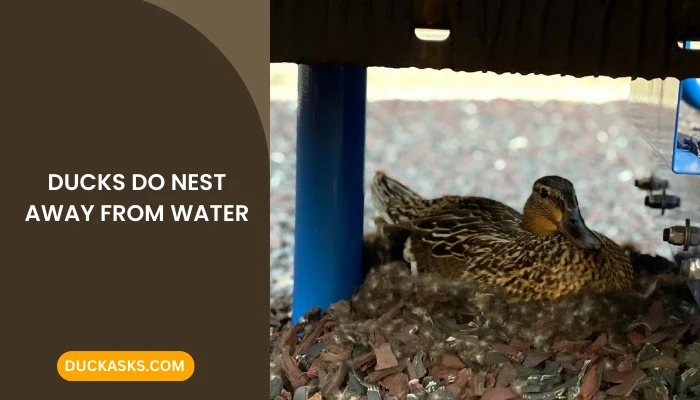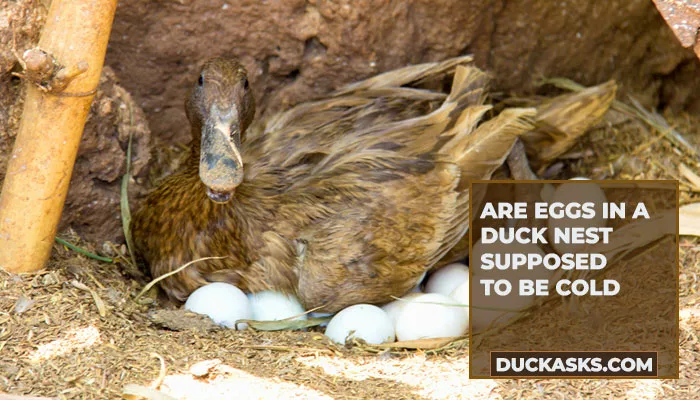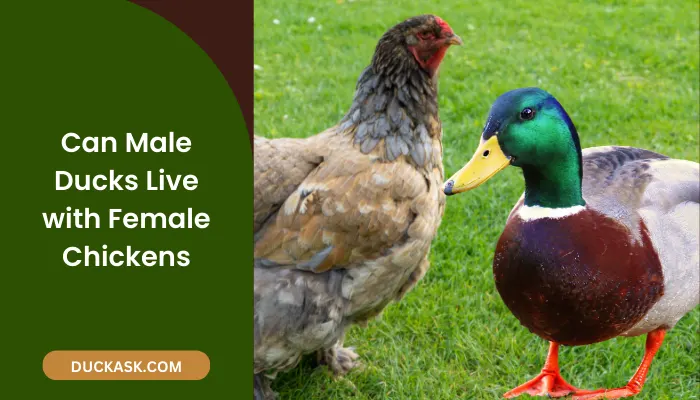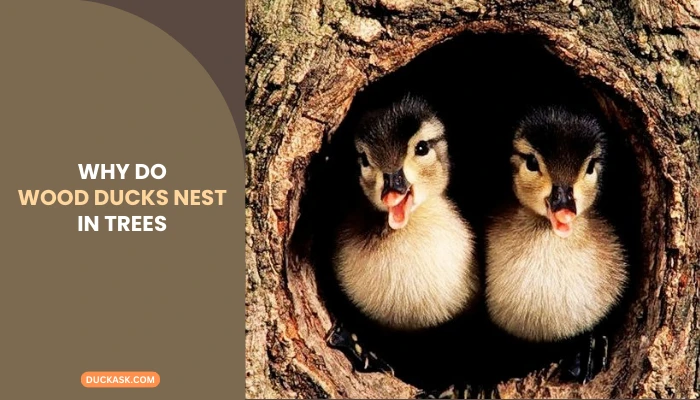Why Ducks Will Not Get off Nest?
A duck always comes back to its nest after foraging for food all day. Ducks naturally go around their nest and leave when they need to. However, sometimes ducks do not move from their nest.
But have you wondered why ducks will not get off nest? Many have misconceptions that ducks stay in their nest when it is ill. That is not true. The prime reason is when ducks incubate their eggs, they do not get off their nest. So they can protect their eggs and keep them warm.
As a result, the eggs can hatch successfully. However, there are some more reasons, which I’ve discussed in the following sections.
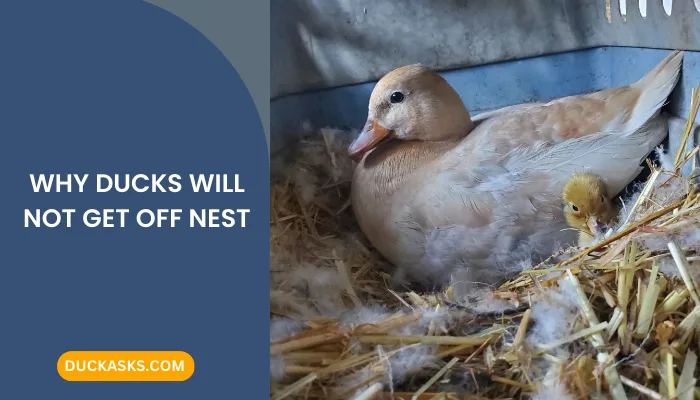
Want to learn more about ducks habitat:
How Long Do Ducks Sit on Nest?
Usually, ducks sit for around 27 to 35 days on their nest to incubate eggs. However, the time varies according to species, environment, and incubation period.
Even though duck sits to protect, prolonged sitting can attract predators like snakes, opossums and raccoons. Whenever the ducks go for a nesting break, predators can attack the nest.
Species
Mallard ducks incubate their eggs for 27 to 28 days. On the contrary, Muscovys take a week more to hatch. They need 35 days to incubate. On average, most ducks need 30 days at least.
Environment
In cold weather, ducks need a more extended period to incubate. So, they sit on their nest for a longer time. However, in summer, ducks need 27 days to hatch their eggs. So, they sit for less time.
If ducks leave the nest for too long in Winter, the eggs might get chilled to death.
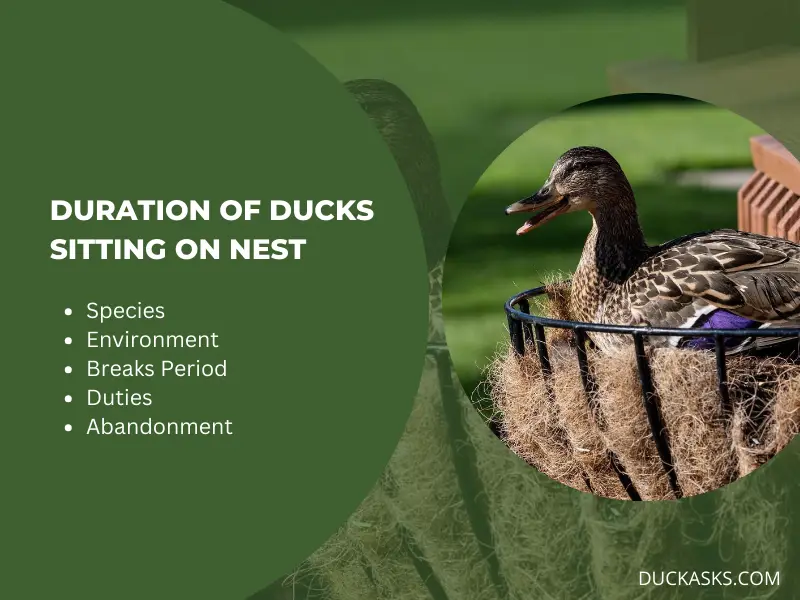
Breaks Period
Ducks usually don’t sit on their nest for a long time except for incubation. They are dedicated parents and won’t leave the next until the eggs hatch. However, ducks take short food and water breaks and sit on the nest quickly.
Duties
Even though ducks sit on their nest, it doesn’t mean only one duck does the job. Males and females take, on average, two hours to sit on their eggs.
This influences incubation and the sitting period. The times are not constant for all ducks.
Also, ducks spend extra time in the nest while rotating eggs for the embryos’ development. Excessive sitting on eggs can delay ideal hatching time and cause harm to eggs.
Abandonment
Ducks can’t stay long in their nest if the weather is harsh or they face threats. Also, if a mother duck leaves its nest for too long, then it might forget the way back. Altogether, it can create abandonment risk.
What Time of Day Do Ducks Leave Their Nest?
From my observation, there isn’t any specific time when ducks leave their nest. Different species of ducks leave at different times of the day according to their need. The most common times are morning and afternoon.
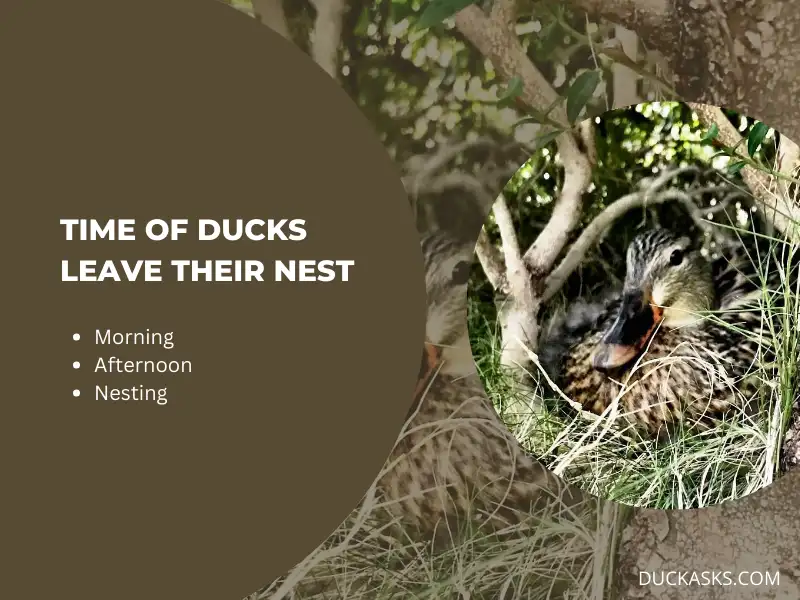
Morning
Some ducks always leave early in the morning. After a whole night of incubating eggs, they go to find food. Also, morning is the best time for hunting food for ducks.
Afternoon
Ducks leave their nest in the afternoon to forage for food. It includes insects, plants, and aquatic organisms.
Nesting
As I mentioned, ducks share duties and take turns. When they are switching nesting responsibilities, they can go away from their nest. Sometimes, it can turn into a brief break.
However, there is no specific time of the day when ducks do this.
What Are the Reasons Why Ducks May Refuse to Leave Their Nest?
Besides incubation, ducks can refuse to leave their nest due to predators. Ducks also stick to their nests to protect their eggs and ducklings. I’ve discussed some factors briefly below.
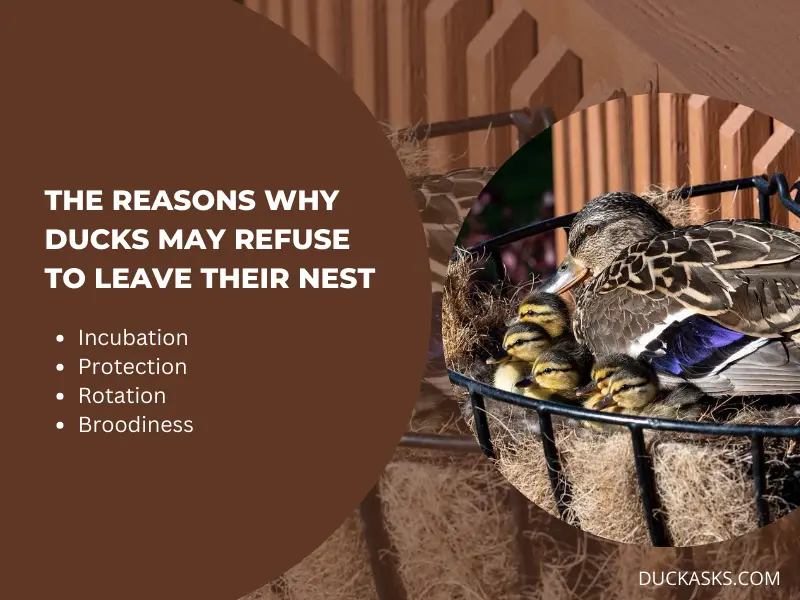
Incubation
Usually, female ducks are primarily responsible for incubation. They refuse to leave their nest to regulate the egg temperature.
Incubation is a sensitive time and any hazards can cause harm to eggs. So, ducks stay in the nest to nurture the eggs.
Protection
In case of a predatory attack, ducks tend to stay in their nest as long as the risk is under their control. Foxes, raccoons, or other animals can harm the nest or the eggs. If the attack is out of control, only then ducks abandon their nest.
Rotation
They stay on their nest to rotate eggs and to distribute heat. Ducks keep their eggs clean while staying in the nest. Eggs need uniform heat to grow properly, so ducks must constantly stay on the nest and refuse to leave.
Broodiness
Due to maternal instinct, ducks may refuse to leave their nest to hatch eggs. After laying eggs, it’s common for the female duck to refuse to leave its nest.
What Signs Indicate a Duck Is Ready to Leave Its Nest?
A simple sign is that ducks are getting restless and may fidget around a lot. My pet ducks usually quack a lot when ready to leave their nests.
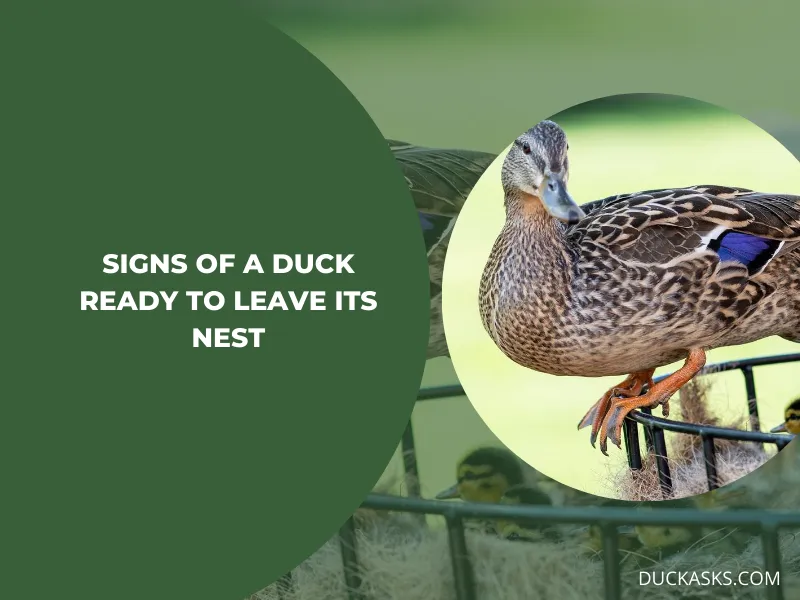
Sometimes, you’ll notice them stretching their legs and wings heavily while lying in the nest.
If your duck stands up, it’s clear it’ll leave the nest. Once ducks start hatching, they’ll often leave their nest.
Conclusion
Ducks will not get off the nest due to maternal instinct for hatching their eggs. However, they often leave their eggs unprotected if the threat is high or beyond control.
Usually, when they find environmental hazards in power, they’ll stick to their nest. If you’re petting ducks, then visiting their nest often can either stress them or relieve them, depending on how you treat them.
If you liked this article, then share it on your social media. Do not forget to follow our Facebook, Twitter, and Pinterest.
Reference:
- https://www.ncbi.nlm.nih.gov/pmc/articles/PMC6509383/
- https://www.sciencedirect.com/science/article/pii/S1751731120300690
- https://www.jstor.org/stable/1364954
Image Credits:
- https://www.instagram.com/tiny._.ducks/
- https://www.instagram.com/sueecklphotography/
- https://www.instagram.com/pandorrax/



